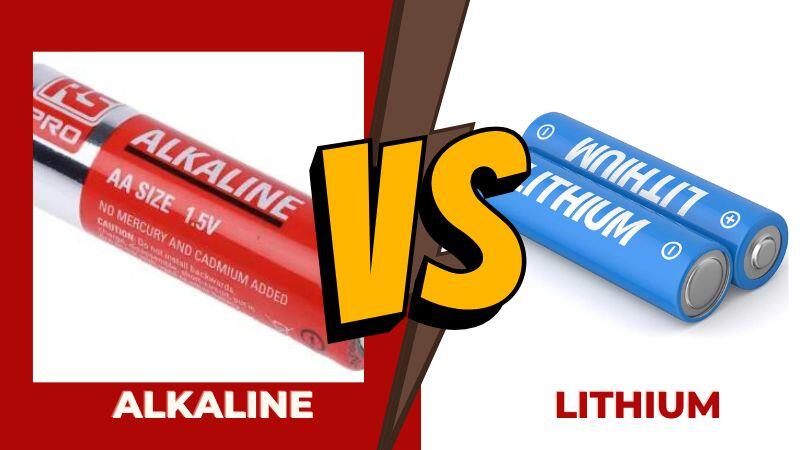Batteries have become an essential part of our lives. They power a wide range of devices, from our smartphones and laptops to our TV remote controls and car engines. As technology continues to evolve, so do our battery options. Two of the most commonly used battery types are alkaline and lithium batteries.
Alkaline batteries have been around for over a century and are the most widely used type of battery. They are relatively inexpensive and can be found in most stores that sell batteries. Lithium batteries, on the other hand, are a newer technology that has gained popularity in recent years. They are more expensive than alkaline batteries, but they offer longer battery life and better performance in extreme temperatures.
Choosing between alkaline and lithium batteries can be a daunting task, especially with so many options on the market. In this article, we’ll take a closer look at the differences between these two battery types and help you decide which one is best for your needs. We’ll compare factors such as cost, performance, and environmental impact to give you a comprehensive overview of these popular battery options.
Differences Between Alkaline and Lithium Batteries
| Factors | Alkaline Batteries | Lithium Batteries |
|---|---|---|
| Chemistry | Zinc-manganese dioxide | Lithium |
| Voltage | 1.5V | 3V |
| Capacity | Lower capacity | Higher capacity |
| Self-discharge rate | Higher self-discharge rate, loses charge over time even when not in use | Lower self-discharge rate, can be stored for longer periods without losing charge |
| Weight | Heavier | Lighter |
| Size | Available in a wide range of sizes, from AAA to D | Available in fewer sizes, but more specialized sizes for specific applications |
| Useful life | Shorter useful life, typically between 1-2 years | Longer useful life, can last up to 10 years or more |
| Applications | Low-drain devices, such as remote controls, flashlights, and clocks | High-drain devices, such as digital cameras, portable audio devices, and medical equipment |
| Availability | Widely available, can be found in most stores that sell batteries | Less widely available, may not be stocked in smaller stores or specialty retailers |
| Price | Relatively inexpensive | More expensive |
| Environmental impact | Can be harmful to the environment if not disposed of properly, not rechargeable | Rechargeable, but manufacturing process can be environmentally damaging, can release harmful chemicals if not disposed of properly |
| Best for | Everyday, low-drain devices | High-performance, high-drain devices, and those needing longer shelf life and less frequent battery replacements |
Cost
Alkaline batteries are generally cheaper than lithium batteries. They are widely available and can be found in most stores that sell batteries. On the other hand, lithium batteries are more expensive, but they can last up to three times longer than alkaline batteries.
Check also – Alkaline vs Silver Oxide Batteries: What are the Differences?
Performance
Lithium batteries have a higher energy density than alkaline batteries. This means that they can store more energy in a smaller package, resulting in longer battery life. Lithium batteries also have a longer shelf life than alkaline batteries, meaning they can be stored for longer periods without losing their charge. Additionally, lithium batteries can operate in extreme temperatures, both hot and cold, without experiencing a significant drop in performance. Alkaline batteries, however, can lose their charge more quickly in extreme temperatures.
Environmental Impact
Both alkaline and lithium batteries have an impact on the environment. Alkaline batteries contain materials such as zinc, manganese dioxide, and potassium hydroxide, which can be harmful to the environment if not disposed of properly. They are also not rechargeable, meaning they can only be used once and then discarded. In contrast, lithium batteries are rechargeable, meaning they can be used multiple times before they need to be disposed of. However, the manufacturing process of lithium batteries can be environmentally damaging, as it requires the extraction and refining of metals such as lithium, cobalt, and nickel. Furthermore, if lithium batteries are not disposed of properly, they can release harmful chemicals into the environment.
Conclusion
In conclusion, the decision between alkaline and lithium batteries comes down to your specific needs and priorities. If you need a battery for a low-power device and cost is a major concern, alkaline batteries may be the best option for you. However, if you need a battery for a high-power device and longer battery life is important, lithium batteries may be worth the investment. Additionally, if you are concerned about the environment, lithium batteries may be the more eco-friendly choice, as they are rechargeable and can be used multiple times before disposal. Ultimately, whichever battery type you choose, it’s important to dispose of them properly to minimize their impact on the environment.




